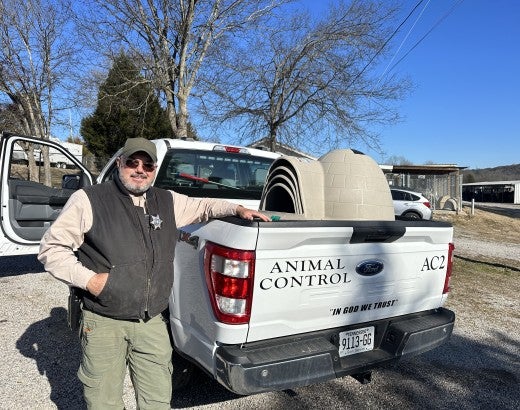Throughout the country, millions of people are experiencing a devastating housing crisis—and people with pets face special hardships when searching for a place to live. It’s still far too common that some rental properties have arbitrary restrictions about the allowed breeds or weight of companion animals, and some properties also impose exorbitant, often non-refundable fees on tenants with pets. These policies can have serious consequences. They can adversely affect a tenant’s ability to access housing, contribute to pet relinquishment and can act as a major barrier to people acquiring an affordable and stable place to live. This can leave families facing an unthinkable situation: having to choose between a roof over their heads and their beloved companion animals.
That is why it is so heartening that some states are taking action with laws that lessen the pressure on families with pets. Just last week, Gov. Gavin Newsom of California signed a bill into law that will require housing developments financed through the Department of Housing and Community Development and the Low-Income Housing Tax Credit Program to allow residents to keep pets. It also directs these housing providers to implement pet-inclusive policies that are free from breed or weight restrictions and do not require tenants to pay monthly pet fees on top of regular monthly rent and security deposits. The law balances protections for property owners and imposes reasonable pet-keeping rules and regulations, while improving access to affordable rental housing for California’s low-income households with pets. This law was inspired by the groundwork laid by the Pet Friendly Housing Act of 2017, and we thank Sen. Josh Newman for taking up this urgent issue and partnering with us to ensure pets and families can stay together. We also appreciate the members of the California State Legislature who voted in support of this bill and Gov. Newsom for taking swift action to sign it into law.
California isn’t the only state that has gone the extra mile to recognize the importance of the human-animal bond and its relationship to the housing crisis. We also worked in Nevada and Illinois to increase the availability of affordable housing that accepts pets, and several other states have introduced legislation that has yet to pass. So, there has been a lot of positive progress, but there’s still work to be done.
What the research says
The term “pet-friendly housing” is supposed to describe rental housing that accommodates tenants with pets, but the truth is the majority of “pet-friendly” housing is rife with limitations and strict conditions. Instead of welcoming, it’s exclusionary.
A record number of U.S. households and nearly three-fourths of U.S. renters have pets. Most Americans think of their pets as members of the family, so when tenants have trouble finding housing that will accommodate their companion animals, it can create a crisis. Although 76% of owner/operators say their properties are pet-friendly, 72% of residents surveyed said that pet-friendly housing is hard to find and 59% say that truly pet-friendly housing is too expensive, according to findings from Michelson Found Animals and Human Animal Bond Research Institute. The research points to pet restrictions as the primary cause of this disconnect and a barrier for many in securing housing.
According to a recent analysis in the Frontiers in Veterinary Science Journal, pet fees beyond a security deposit add to the financial barriers that low-income tenants face when trying to find housing. The fact that pet rental fees and restrictive policies are onerous and contribute to housing insecurity is reflected in the numerous support programs and funding allocated to organizations charged with caring for individuals in need of assistance with pets.
A report from Best Friends Animal Society found that human reasons were three times as likely to drive relinquishment compared to issues related to the pets themselves. The most frequently cited reasons why people relinquish their pets were “too many animals,” at 16.1%, and “housing,” at 13.7%. This is why organizations like HEART LA, RedRover and others committed to keeping pets and their families together in times of crisis have their work cut out for them at the present time.
How you can help
The clear takeaway from this situation, as with so many others, is that animal and human welfare cannot be viewed independently. If we want to protect pets, we must protect the people who love them, and stronger protections for companion animals and their caretakers begin with local government. Being creative and educating yourself about the housing crisis this country is experiencing will help keep pets and their people together. You can join us in creating more humane, stably housed, pet-inclusive communities. I encourage you to build alliances, talk to your lawmakers and get engaged—our advocate toolkits are a great place to start.
Follow Kitty Block on Twitter @HSUSKittyBlock.



